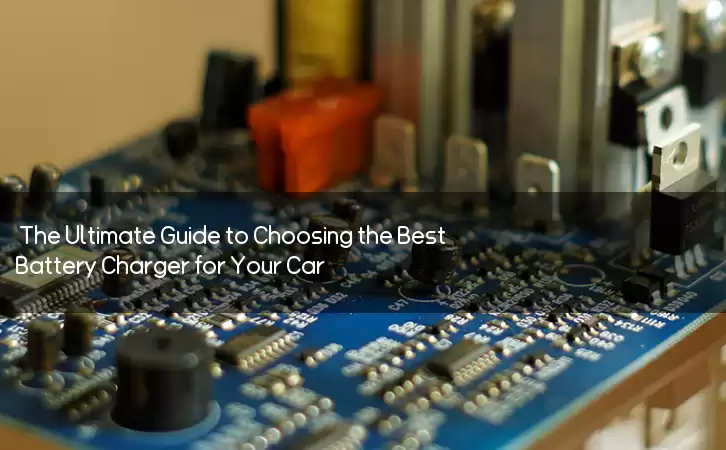Information Center
The Ultimate Guide to Choosing the Best Battery Charger for Your Car
Published:2023-06-20 10:34:56 Author:Green WCND Views:45Battery Charger for Car

A car battery can fail for a number of reasons such as leaving the lights on, operating the radio or other accessories when the car is not running, very hot or cold weather, or just old age. In such cases, the battery needs to be recharged or replaced, and recharging is the more economical and convenient option.

For many car owners, recharging the battery means taking the car to a mechanic or an auto parts store. However, with the increasing availability and affordability of battery chargers for cars, the task can be performed easily in one’s own garage or driveway. A battery charger is an electronic device that delivers electrical energy to the battery to restore its charge and ability to start the car.

There are different types of battery chargers for cars, with various features, capacities, and price ranges. The most common types are:
- Trickle chargers: These chargers deliver a low and continuous current to the battery, which slowly and steadily charges it without overloading or overheating. Trickle chargers are usually automatic, meaning they turn on and off as needed, and can be left connected to the battery for an extended period of time. They are ideal for long storage periods or for maintaining the charge of seldom-used or seasonal vehicles.
- Fast chargers: These chargers deliver a higher and faster current to the battery, which can recharge it in a matter of hours. Fast chargers are suitable for emergency situations when the battery needs to be charged quickly to get the car running again. However, they can be more expensive and require more attention and supervision to avoid damaging the battery or causing a fire.
- Jump starters: These devices combine a battery charger with cables and clamps that can be attached to the dead battery of a car and the live battery of another car to transfer enough energy to start the engine. Jump starters are handy in situations where the car’s battery has completely drained and cannot be recharged by other means. However, they are less effective for long-term charging and may not work with all types of batteries or vehicles.
When choosing a battery charger for a car, several factors should be taken into account:
- The voltage and amperage of the battery: These determine the capacity and power requirements of the charger, which should correspond to the specifications of the battery. Using a charger with lower or higher specifications than the battery can damage it or cause it to undercharge or overcharge.
- The type of battery: Different types of batteries, such as lead-acid, AGM, gel, or lithium-ion, require different charging modes and voltage settings. Make sure the charger is compatible with the type of battery in the car.
- The size and weight of the charger: Some chargers can be bulky and heavy, which can pose a challenge for storage and portability. Consider a charger that is compact and lightweight but still sufficient for the task.
- The safety features of the charger: A good charger should have built-in protections against overcharging, short-circuiting, reverse polarity, and other hazards that can damage the battery or cause a safety risk. Look for certifications and ratings from reputable organizations such as UL, CE, or FCC.
Finally, when using a battery charger for a car, follow the instructions carefully and safely. Make sure the charger is unplugged before connecting or disconnecting the cables or clamps, and avoid touching the metal parts to prevent shocks or burns. Monitor the progress of the charging and avoid leaving the charger unattended for long periods of time. With the right battery charger, charged car batteries are just a plug away.
Battery testers of different voltages exhibit significant differences in several aspects, and a 12V battery tester is primarily used for testing a range of spec···
Battery Testers (battery capacity testers/battery detectors) indeed come in various types tailored for different products. These different types of battery test···
The advantages and disadvantages of battery testers are as follows:AdvantagesFlexibility:Battery testers can accommodate various testing modes, making them adap···
Understanding the testing accuracy of golf cart battery testers is crucial for ensuring the precision of test results. Here are some methods to assess the testi···





